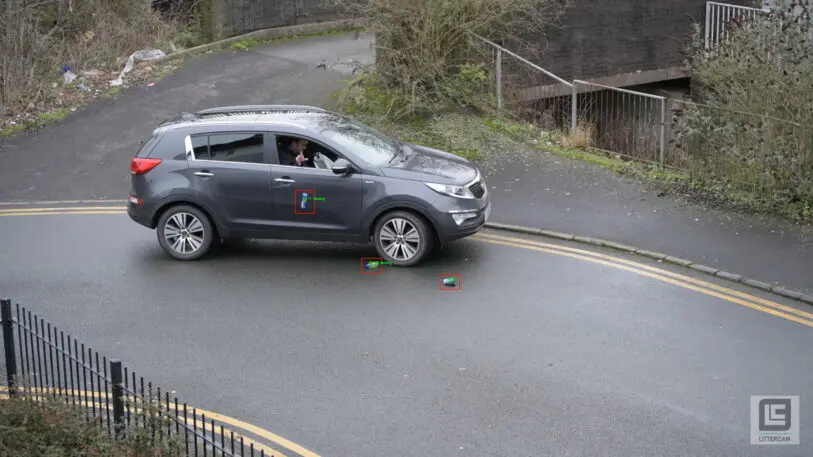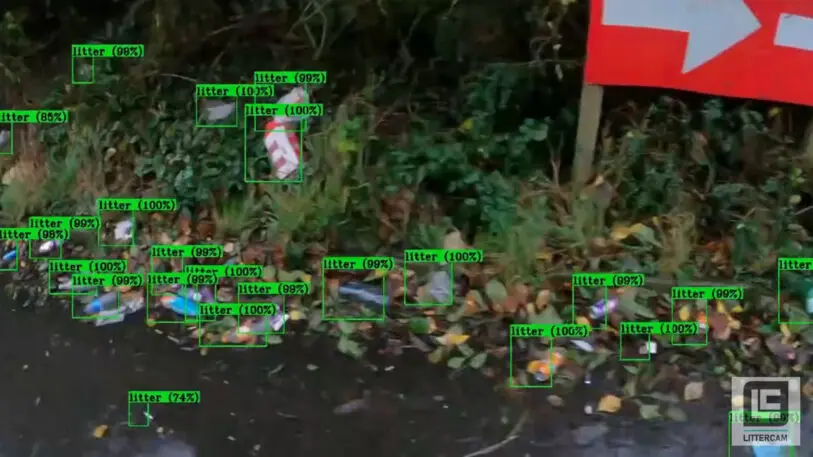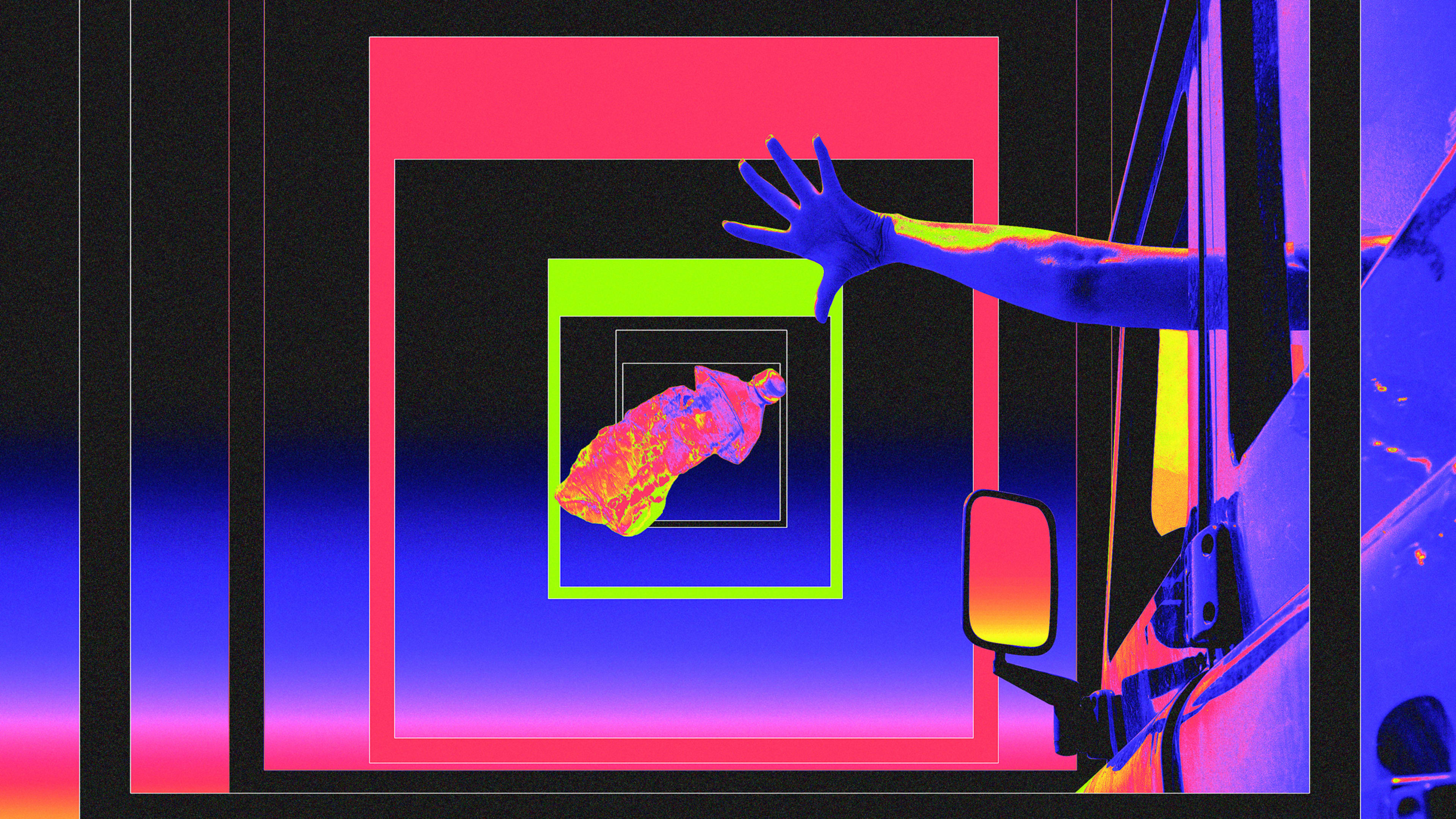Have you ever blown through a red light, only to get a notice a few weeks later that you owe $100? Soon, you might get the same treatment if you’re caught throwing your trash from the window of your car.
British tech company Littercam has developed a technology that uses AI and computer vision to detect littering and match it with the offender’s license plate. Cameras can be mounted on lampposts or plugged into existing CCTV cameras. The software is in its first six months, but it’s already being trialed in Kent, Central London, Essex, Scotland, and The Netherlands.
[Image: Littercam]Litter poses a significant threat to the environment, and the UK spends about £850 million cleaning it up from the streets. Introducing an algorithm to the policing process brings its own set of challenges. In the U.S., in particular, traffic tickets end up disproportionately harming low-income and minority residents. But by removing the need for direct interactions with law enforcement, cameras may also promise fairer treatment.
In April of last year, a series of Littercam cameras were installed across Maidstone, the largest town in Kent, England, in pre-determined hotspots like roundabouts and intersections where littering is common. The algorithm was trained to detect the 10 most common litter types, including cigarette butts, cups, and fast-food packaging. When the computer catches a litterbug in the act, it registers the offense and matches it with the license plate. (The algorithm can also be used to detect graffiti and waste on the side of the road.)

“Fundamentally, it’s about behavior change,” says Kemp, “but more broadly, we’re a technology company that wants to take on challenging data science problems to deliver the technology of the future, particularly from an environmental perspective.” Of course, no one likes littered sidewalks, but there is more to trash than aesthetics. Litter can wash into waterways and be mistaken for food by wildlife, and cigarette butts can take up to 10 years to decompose. To deter citizens, cities across the U.S. have been passing anti-littering laws, with fines ranging from $100 and eight hours of clean-up in California, to up to $3,000 in Alabama, which in 2019 upgraded littering—especially the kind thrown from cars—to a misdemeanor punishable by jail time.
[Image: Littercam]It remains unclear whether huge fines actually reduce litter, but traffic tickets more broadly have been met with mixed results. The Insurance Institute for Highway Safety (IIHS) found that red-light cameras reduced the rate of fatal crashes in large cities by 21%, but a separate 2017 study found they may not have made streets safer, because people tend to stop more abruptly and rear-end other cars. For low-income and minority residents, parking and camera tickets have also had devastating knock-on effects. As ProPublica reported in 2018, unpaid tickets can spiral out of control quickly, causing a “ticket trap” that can send tens of thousands of Black Americans into bankruptcy. In Chicago alone, for example, the outstanding debt owed for city tickets grew from $1.45 billion in 2018 to more than $1.8 billion in 2021. And while those numbers include all kinds of traffic violations, automation only makes things worse.
Handing over the reins to an algorithm is bound to increase the number of violations, fueling more racial and income disparities. As a result, a number of cities in the U.S. have been eliminating red-light cameras. Rochester, New York, ended the program in 2017 because the financial burden, which was particularly heavy for low-income neighborhoods, outweighed the safety benefits. And in 2017, Miami ended it for similar reasons. But for cities that still rely on these cameras, the impact can be extreme. In fact, ProPublica just released reporting showing that Chicago’s automated speed cameras disproportionately ticketed Black and Latino drivers.

It’s too soon to tell whether Littercam will deter more people from littering, or the consequences it may have on low-income residents. The program’s other applications, which allow for AI-powered cameras to be mounted on an assessment vehicle, could also help make highway and road maintenance more efficient by detecting litter on the side of the road and geo-tagging it so it can be cleaned more quickly. “It’s really about creating awareness around what impact littering does to the environment and the cost to individuals as taxpayers,” says Kemp.
Recognize your brand’s excellence by applying to this year’s Brands That Matter Awards before the early-rate deadline, May 3.
